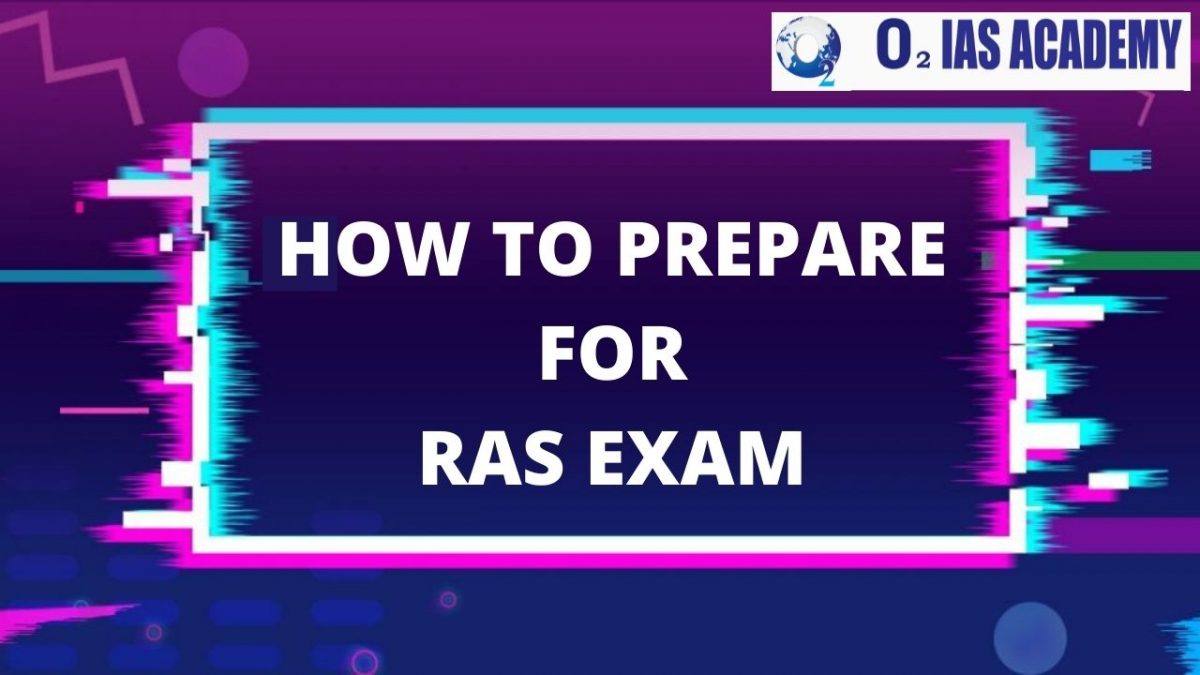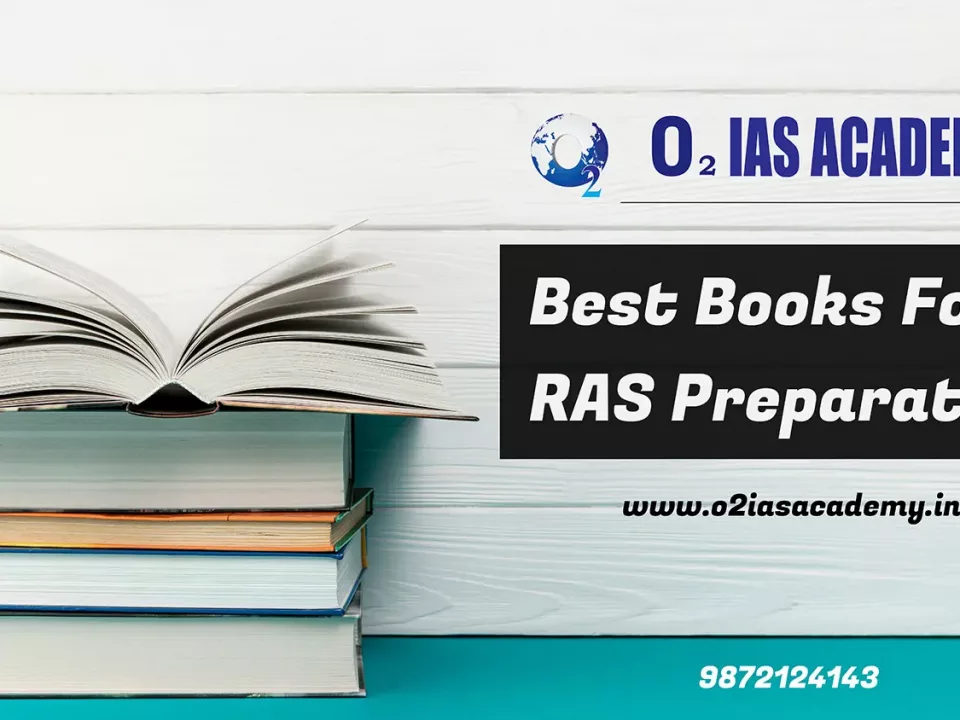Top 10 Tips for RPSC RAS Exam Preparations

Many aspirants have a dream to join civil services whether at the central level or state level. It is not possible to be an IAS officer for every candidate, so they prepare for state-level services exam. RPSC RAS is the exam for the state services of Rajasthan. Rajasthan administrative service is a state-level exam in Rajasthan for the selection of students who wants to run the state.
Every year lakhs of students appear for the RAS exam for selecting the deserving candidates to fill 400-450 vacancies. There is a hope of getting selected in the exam for each candidate, but only a few of them got a chance, those who prepared with proper planning and the right strategy.
In this article, you will get all the for preparing for the RAS exam and achieve your goal. It is not possible to clear the RAS exam by only carving the books as the mains question paper is designed to know the overfall adaptability and suitability of the candidate for the job.
The civil services exam, especially the interview round is designed to judge the intellectual development of the student. It is essential that a candidate should have deep knowledge about the events going around her.

How to prepare for the RAS Exam 2021-22?
This article helps beginners to know how to prepare for the RPSC RAS exam and crack it on the first attempt. We discuss important tips that help the students to make proper planning and strategy in order to achieve the goal.
There are some important tips mentioned below:

Tip#1:- DECIDE WHETHER IT IS YOUR PASSION, IF YES MAKE IT YOUR GOAL
To join state services or civil services is a dream of every Indian, you have to decide whether it is your passion and dream. If yes, then go for it. Achieve it as a life saving oxygen and grab the opportunity in first attempt. Give your 200% dedication to achieve the goal. The candidates give their 200% to clear the exam in first attempt but still some have lost it with 0.05%.
Just evaluate your free time and Gather Information for Weighing Your Options. If you can spare 3-5 hours a day for Self Study along with your other tasks in the day for at least one year. Then you can start your preparation
You should ask yourself a question. What is the source of your motivation for the RAS Examination?
If your motivation is internal and you are ready to devote at least one year of your life then you are ready to be a Civil Servant in Rajasthan
Tip#2:- Understand the Pattern of RAS Exam
Before starting the preparation for any exam, it’s important to know the pattern and syllabus of the exam. If you don’t know the syllabus then how would you prepare for that? So first note down the pattern and syllabus and collect study material according to it. Don’t indulge yourself with lots of books and study material as it will waste your time and effort. Just study the exact topics and points.
RAS PRELIMINARY EXAM Syllabus and Pattern
This is the first stage of the RAS exam where any student can appear in. RAS pre is just qualifying in nature, and marks are not added to the final merit list. There are 150 questions in all, and the total marks are 200. The time duration is 3 hours. The paper is a combination of General Science and General Awareness.
The question level is of graduation level, and the following is the syllabus for the pre-exam.
- History, Culture, Art, Heritage, Tradition of Rajasthan.
- Ancient, Medieval, Modern History of India.
- Geography of both India and the World.
- Geography of Rajasthan.
- Indian Constitution, Political System, and Governance.
- Administrative System of Rajasthan, and the Political System.
- The Economy of Rajasthan.
- Science and Technology.
- Mental Ability and Reasoning.
- Current Affairs of Rajasthan, National, International importance.
RAS MAINS EXAM Pattren and Syllabus
There are four papers in all, and the time duration is 3 hours for each paper. The marks obtained by students are essential for the final merit list.
There are short, medium, and long answer-type questions. Let us now see a brief syllabus for the four papers of mains.
General Science
Paper 1 contains 25 Short Questions, 16 Medium Questions, 7 Long Questions, so the Total Questions become 48, and the Total Marks are 200.
Syllabus: History, Economics, Sociology, Accounting.
Paper 2 contains 15 Short Questions, 14 Medium Questions, 10 Long Questions, so the Total Questions become 39, and the Total Marks are 200.
Syllabus: Science and Technology, Administrative Ethics, Earth Science.
Paper 3 contains 25 Short Questions, 16 Medium Questions, 7 Long Questions, so the Total Questions become 48, and the Total Marks are 200.
Syllabus: Current Affairs, Indian and World politics, Sports and Laws, Concepts of Public Administration, Yoga.
For General Hindi and English:
Comprehension, Essay Writing, Grammar, Translation.
RAS INTERVIEW Details
This is the final round of selection, and the students who clear the mains cut-off are eligible to appear in this round.
This is of 100 marks, and the final cut-off is prepared based on 800 marks in mains and 100 marks in the interview.
Tip#3 DON’T CRAM ENTIRE BOOK
To crack the RAS exam or any other exam, it is not important to read the entire book as books are not written according to the syllabus and they contain more than the requirement. You have to study the topics according to the syllabus of the exam for which you are preparing. Always make one-page notes for all the topics in the syllabus. This will help you to revise in a better manner before the exam.
Tip#4:- Make your own Notes and Study Plan
To prepare notes is an art, and everyone is not perfect in this. You have to know how to prepare notes for the revision. Notes should not be more than one or two pages, only have important dates and points about the topic. If you don’t know how to make notes, you can take guidance from an expert. Many RAS online coaching provides guidance as well as notes made by expert teachers.
You have already gone through the syllabus so make a custom time plan for a study that syllabus
It is very difficult to memorize and revise this vast syllabus of the RAS exam. You should make precise notes and a mind map to make it easy to memorize and comfortable for last-minute revision before prelims or mains exam.
Tip#5:- Make Newspaper Reading a habit
It is essential to keep track of current affairs, what is happening around us. For the preparation of the RPSC RAS exam, it is essential to have complete information about the knowledge of Rajasthan as while interviewing panel focused on the candidate’s knowledge about Rajasthan. Read newspaper daily but also read monthly magazines about current affairs as newspapers do not provide all the information.
Tip#6:- Start Reading Basic NCERTs First
Because of simple language and uncomplicated explanations, NCERTs are the best source to make foundations for General studies. We recommend you to read the NCERT books first before starting the advanced-level books.
You need to read the NCERT textbooks from class IX through class XII for each subject. Always keep the RAS syllabus for your reference.
Tip#7:- Read Following Standard Books
Here are the Best Books for the RAS prelims and Mains Exam Preparation.
History Books for RAS Exam
- History of Modern India – Bipan Chandra
- Spectrum Modern History
- India’s Struggle For Independence – Bipan Chandra
- India’s Ancient Past – R.S. Sharma
- History of Medieval India – Satish Chandra
Geography Books For RAS Exam
- Certificate Physical and Human Geography – Goh Cheng Leong
- NCERT’s 11th and 12th Class
- Oxford Student Atlas
Environment and Ecology Books for RAS Exam
- Environmental Studies: From Crisis to Cure – Rajagopalan
- NCERT 12th Biology (Chapter 13 onwards).
Indian Polity and Governance Books for RAS Preparation
- Indian Polity by Laxmikant
- Governance in India by Lakshmikanth
Indian Economy Books for RAS Preparation
- Indian Economy – Sanjiv Verma
- Economic Survey of India
- Economic Survey of Rajasthan
General Science and Technology Books for RAS Preparation
- General Science – Arihant Publication
- Science subject NCERTs
- Science Reporter Magazine
Current Affairs Sources For RAS Preparation
The current affairs section is the most important in any competitive exam. Along with regularly reading the newspaper, one should read some good monthly magazines like Yojana Kurukshetra and a Current Affairs Compilation
Rajasthan GK Books for RAS Exam Preparation
- Contemporary of Rajasthan written by kr bhalla Kuldeep bhalla
Tip#8:- Practice Answer Writing for The Mains
RAS Mains Score is the Most important component of the Final Merit List for Selection. A Better Written answer increases your chances of getting selected. You need to Start Answer Writing Practice for the same. This is an art; you should know how to present your answers to get good marks. Many candidates complain that they have written an answer which was relevant to the question but still did not get good marks. The main reason behind this is the way of presenting the answer was not well as it is not about marks only but also how you have presented the answer to the panel.
Tip#9:- Join Prelims Mock test Series
Test series is an important part while preparing for the exam, as it helps the students to analyze their performance after revision and completion of the syllabus. With the help of which students will be able to improve the topics in which they are facing problems. It is recommended to join a test series by the best RAS coaching.
When you have completed any of two subjects of General Studies and current affairs of 2-3 months then you should join a good Practice Test series for RAS Prelims 2021
You should keep the following things in mind before joining any test series for the RAS Preliminary Exam
- Test series must include Sectional Tests and Full-length tests for General Studies
- The test series must be followed by an Explanation Lecture by experienced faculty
- The test series should strictly be according to the latest trend of RPSC Questions
Tip#10:- Revise , Revise , Revise
Revising effectively can go a long way to help you prepare for the RAS Exam in a manner so that you end up cracking it in the first attempt itself. Your Short notes and Mind Maps are a one-stop solution for holistically revising the whole syllabus. Here are a few tips to revise Syllabus in a better way
Take Small Targets, complete them, and then revise.
For Example, you have decided to read a particular topic in a Book within 2 days. After read that topic you should do a quick revision of the shorts notes or Mind Maps you created.
2. Revise Every week
Choose a day, preferably Sunday, on which you will revise the whole syllabus you studied last week.
3. Daily review
Start taking a daily review of the previous day’s study or notes before starting a new topic of the day
All the best!

